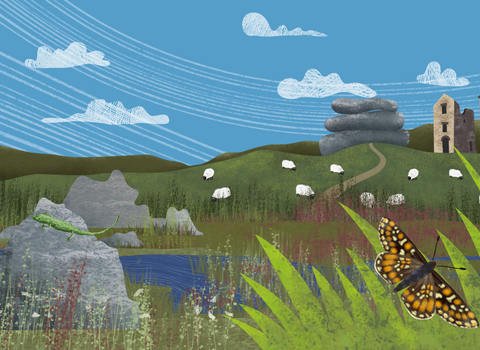A wildlife-rich world is vital for our wellbeing and survival, yet many of our systems and laws have failed the natural world. We are now living in a nature and climate emergency. Wildlife and wild places are disappearing. But we know that the more space nature has, and the more those spaces are connected, the better its chance of survival.
With this in mind, we envisage a Nature Recovery Network for Cornwall - protecting and creating larger areas of habitat that are connected by wildlife corridors – ensuring land is actively being put into recovery for nature’s benefit.
It’s all connected: a Nature Recovery Network for Cornwall
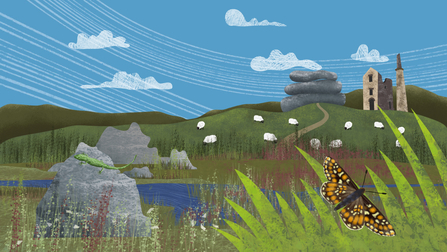
Moorland
The draining of moorland and wetland was encouraged in the past to increase food production but this led to the loss of many species-rich areas of habitat. Large areas of peatland soil dried out and degraded, releasing carbon dioxide, contributing to climate change. By re-wetting peatlands and regenerating natural vegetation, we can restore a higher diversity of plants and animals as well as storing more carbon.
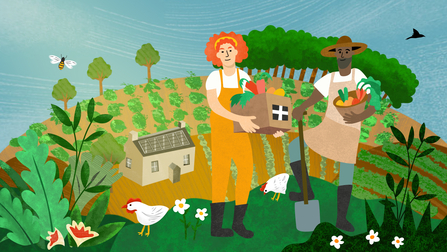
Farmland
Our farmland supports far less wildlife than it did a generation ago. It doesn't have to be like this; Cornwall Wildlife Trust is working with farmers who are using regenerative farming techniques, reducing their use of pesticides and artificial fertilisers and restoring soils and wildlife.
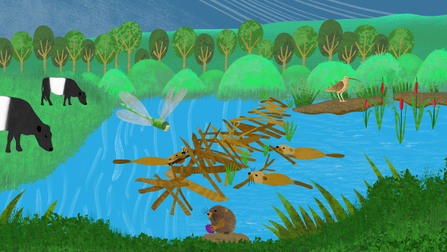
Rivers and streams
In many areas land is farmed right up to the banks of rivers and streams. This leaves little space for streamside wildlife and means that soil, pesticides and artificial fertilisers are easily washed in, polluting the water. Expanding on Cornwall Wildlife Trust projects such as trialing the reintroduction of beavers would lead to more natural dams to filter pollutants, pools for wetland wildlife and a slower flow of water which reduces flooding.
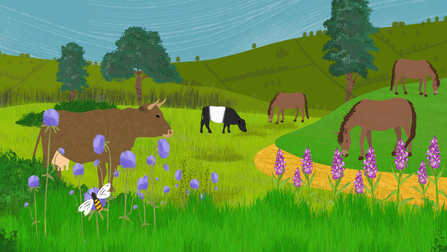
Rewilding
A few landowners are choosing to re-wild their land. Re-wilding is where natural processes are restored as far as possible, like introducing a mix of domestic grazing animals to mimic the effects of ancient herbivores that once roamed across the land. The aim is to let nature take care of itself, forming dynamic mosaics of scrubland, woodland groves and open grasslands supporting a plethora of wildlife.
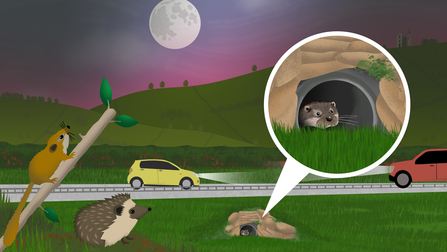
Roads
Roads create impassable barriers for many species. By building green bridges or designing tunnels at known crossing points, wildlife can move around more safely and relocate if needed as the climate changes.
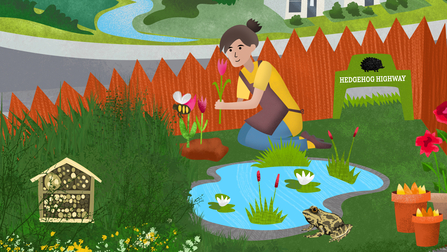
At home
At home we can unlock wildlife and turn our urban spaces into green jungles by creating hedgehog holes, building bug hotels and ponds, and embracing natural gardens.
Our town planners can work with nature, introducing wildlife corridors and urban meadows for both people and wildlife to enjoy.
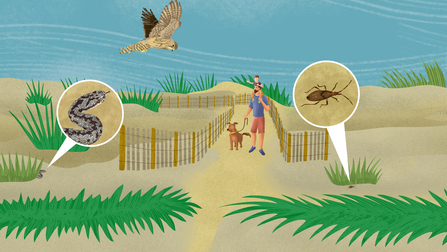
Coast and sand dunes
On the coast, our sand dune systems are home to an array of birds, plants, reptiles, beetles and butterflies. Sand dune species like ground nesting birds are vulnerable to human disturbance; they will not breed in areas where dogs run off the lead. Conservation management like cattle and pony grazing helps to maintain a diverse mix of vegetation types, in turn allowing more wildlife to thrive. Find out more about the work we're doing to restore sand dunes as part of our Dynamic Dunescapes project.
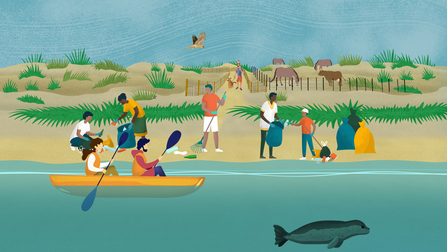
Beaches and shoreline
Cornwall’s landscapes are our biggest asset for tourism. On our beaches and in our seas, pollution and wildlife disturbance is a big problem. We can all help by doing a beach clean, limiting use of pollutants upstream and ensuring that mammals such as seals and dolphins are given plenty of room when humans explore our coastline and clear waters.
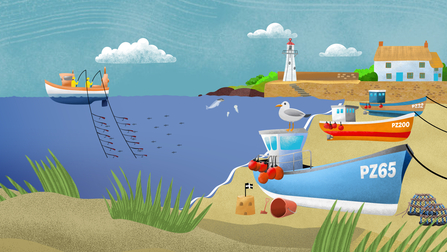
Seas
Cornwall’s iconic fishing industry is world famous. Our seas need protection from overfishing and its unintended impacts on other marine wildlife. By supporting fishermen who fish sustainably we can influence continued improvement in the industry for years to come.
There is much to do, but together we can bring nature back and create a Wilder Cornwall! It’s all connected – a network for nature that gives wildlife the space to recover for the benefit of one and all.
What changes for nature would you like to see where you live?
A thriving natural world is essential for our health, happiness, climate, and future.
As a resident of Cornwall we want your views - what changes for nature would you like to see where you live?
Let us know below...

